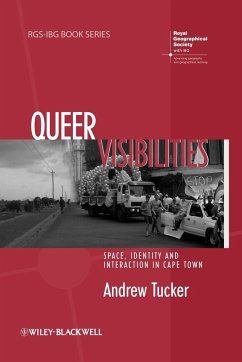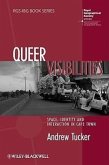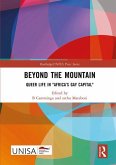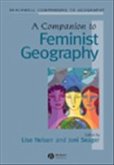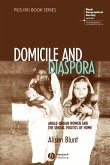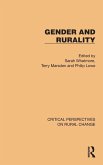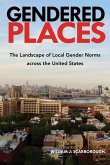Queer Visibilities explores the gap between liberal South African law and the more dangerous reality for groups of queer men living in Cape Town. By examining the lives of queer men among the three major 'race' groups in Cape Town - whites, coloureds and black Africans - this illuminating new study shows how changes in South African law remain marginal to vast numbers of the city's queers. The text also explores the inextricable links between the regulation and expression of queer sexualities and the histories of racial classification in the country. It argues that Western notions of 'the closet' fail to account for important distinctions between men who at times inhabit vastly different social worlds. Such distinctions, however, must be uncovered if the needs and wishes of diverse communities are to be understood. Queer Visibilities combines the most up-to-date theoretical arguments with extensive new field research to shed light on some important failures of the New South Africa - including the many hardships faced by black African queer men in the Cape Town townships and a 'forgotten HIV epidemic' caused by lingering homophobia and ignorance. This important new book contributes valuable insights into the study of human sexuality and reveals how sexual discrimination remains a challenge that must be overcome for the true spirit of reconciliation to be realised in South African society.
Hinweis: Dieser Artikel kann nur an eine deutsche Lieferadresse ausgeliefert werden.
Hinweis: Dieser Artikel kann nur an eine deutsche Lieferadresse ausgeliefert werden.
"This attention to the materiality of the city, as well as therelational complexities of historical and contemporary interactionsbetween queer men from different racialised backgrounds is one ofthe major strengths of this book. Queer Visibilities offersvaluable lessons for sexual geographers and urban geographers alikeand deserves to be widely read." (Area, 2011)
"Tucker successfully resists closing down debate, carefullyqualifying his points without qualifying them out of existence. Hisassessments are many, detailed and well substantiated by interviewquotations. One is unable to comprehensively review the manyvaluable insights he brings here. Read the book." (Book SouthernAfrica, September 2010)"Queer Visibilities is amuch-needed intervention in the geographies of sexualities. Drawingupon extensive ethnographic and archival work, it provides atheoretically sophisticated examination of the interconnectedpolitics of class and race in the production of sexualised spacewithin contemporary Cape Town."
-Jon Binnie, Manchester Metropolitan University
"How can we understand the closet if we do not understand ourvisibilities? Tucker has provided an impressive study driven byintellectual parley between geography, queer theory, postcolonialand development studies. This book adds to the already powerfulqueer geographies on a fascinating place as well as to debatesaround queer globalisations."
-Michael Brown, University of Washington
"Tucker successfully resists closing down debate, carefullyqualifying his points without qualifying them out of existence. Hisassessments are many, detailed and well substantiated by interviewquotations. One is unable to comprehensively review the manyvaluable insights he brings here. Read the book." (Book SouthernAfrica, September 2010)"Queer Visibilities is amuch-needed intervention in the geographies of sexualities. Drawingupon extensive ethnographic and archival work, it provides atheoretically sophisticated examination of the interconnectedpolitics of class and race in the production of sexualised spacewithin contemporary Cape Town."
-Jon Binnie, Manchester Metropolitan University
"How can we understand the closet if we do not understand ourvisibilities? Tucker has provided an impressive study driven byintellectual parley between geography, queer theory, postcolonialand development studies. This book adds to the already powerfulqueer geographies on a fascinating place as well as to debatesaround queer globalisations."
-Michael Brown, University of Washington

